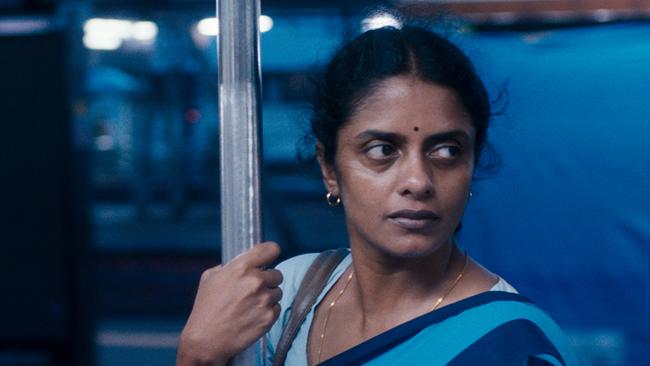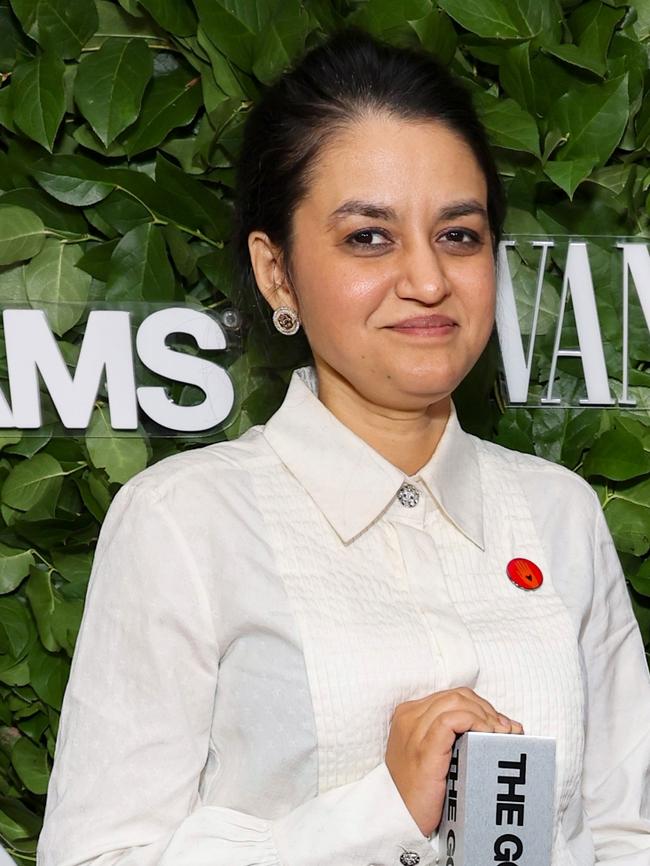New Indian drama finds the depth in ordinary lives
Payal Kapadia’s quietly beautiful Indian drama All We Imagine As Light explores class, gender, financial and religious divides.

The luminous Indian drama All We Imagine As Light, written and directed by Payal Kapadia, centres on three Hindu women who work in a hospital in the bustling, crowded metropolis of Mumbai.
Prabha (Kani Kusruti) and Anu (Divya Prabha) are nurses – “You are all nurses, you have to be stronger,” Prabha, the head nurse, tells new recruits who go squeamish over a placenta – and Parvaty (Chhaya Kadam) is a cook.
Prabha, in her 30s, and the younger Anu share a flat. Parvaty, middle-aged and widowed, lives alone and faces eviction because her building is about to be redeveloped. “Over my dead body,’’ she tells her friends.
Prabha is married but her husband migrated to Germany soon after their wedding and she has not heard from him for more than 12 months.
Anu is dating Shiaz (Hridhu Haroon) but has to keep their blossoming romance a secret because he is Muslim.
We learn that Prabha’s marriage was arranged. “How could you marry a total stranger?” Anu asks. Prabha replies that “you might think you know someone but they can become a stranger”.
And Anu’s family and the broader Hindu community will always consider Shiaz a stranger. They will not agree with his youthfully passionate view that he and Anu together is the “natural way to be”.
This film plumbs the extraordinary emotions that hum and throb through ordinary life. One of the most important moments is when Prabha receives a package from overseas. She opens the box and finds a rice cooker, sent from Germany, presumably by her husband. There is no note.
None of the three women are from Mumbai, the financial capital of India, where the director was born. They are from elsewhere and have come to the big smoke, like so many others, for the “work and money”, as one unnamed character puts it in the sweeping opening sequence.
This is the set-up of this quietly beautiful film, the director’s feature debut. What follows explores class, gender, financial and religious divides. Parvaty wonders if the property developers and other “Mumbai capitalists” think that “one day they will replace God”.

All We Imagine As Light this year became the first Indian film to win the Grand Prix award at the Cannes Film Festival. It has been nominated in two categories – best foreign film and best director – at the Golden Globes, which will be announced on January 5.
It touches on female friendship, desire, longing and loneliness, some of it self-imposed, some of it decided by others. It’s a reminder that someone can feel alone and anonymous in a city of 12 million people.
When a shy doctor (Azees Nedumangad) presents a poem to Prabha, he tells her he has written it for a local poetry competition, but we – and she – know there is more to it than that.
That night she reads the poem and is moved by it. Then, in one of the most heartfelt moments of this film, she pulls the rice cooker from the cupboard, crouches over it, hugs it and weeps. “I keep thinking he’ll come back and say he wants to be with me.”
Later, in a poetic dreamlike sequence that nods to the imagined light of the title, she resuscitates a man who almost drowns in the sea. As he comes to he says he is her husband and she believes him or chooses to believe him.
At one point someone calls Mumbai a “city of dreams or a city of illusions”. It’s a distinction that all three women in this loose sisterhood have to face. Do they follow the dream, believe the illusion or do something else altogether? As the director has noted: “For me, the light represents the possibility of another way.”
All We Imagine As Light (M)
In Malayalam and Hindi languages with English subtitles
115 minutes
In cinemas from Boxing Day
★★★½






To join the conversation, please log in. Don't have an account? Register
Join the conversation, you are commenting as Logout